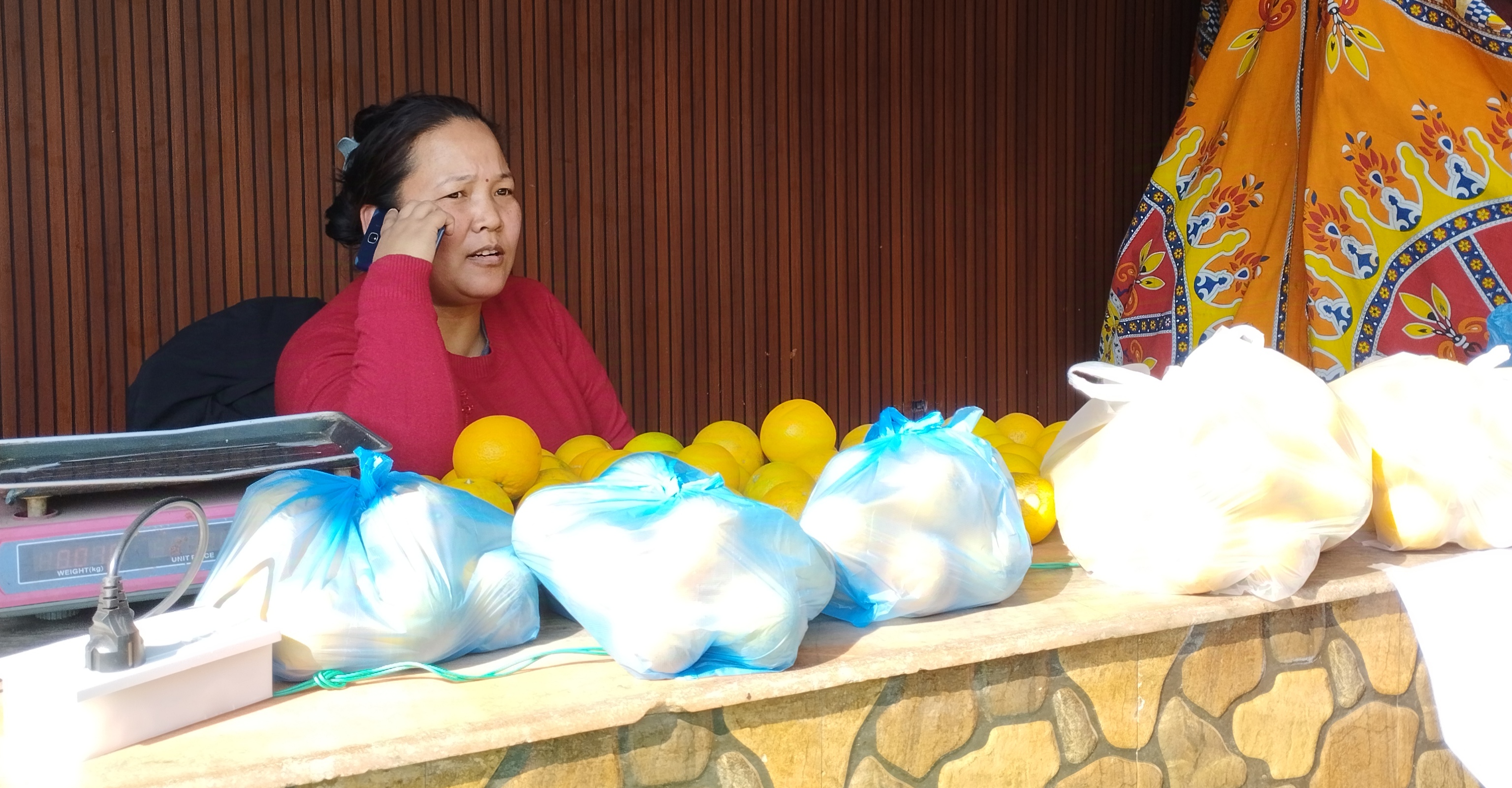Sindhuli, Nepal: The rolling hills of Sindhuli have long been synonymous with Junar, the succulent citrus fruit that has not only boosted the local economy but also become a cultural and regional identity. Along the BP Highway, Junar markets are thriving hubs that draw travelers and citrus enthusiasts alike.
According to Karnabahadur Ale Magar, President of the Junar Development Association, Sindhuli, "The BP Highway is the place where Junar is sold the most. It is not just the pride of Tinpatan but has become the identity of Sindhuli itself. This fruit provides us with economic benefits and immense self-satisfaction."
The popularity of Junar is evident from the bustling markets at Selfidanda, Khaniyakharka, and Khurkot, where travelers often pause to relish the fruit's flavor before continuing their journeys. "I never continue my journey without eating Junar from here," said Gopal Kafle, a traveler from Jhapa to Kathmandu. "My wife also insists that I bring home Junar whenever I pass through Sindhuli."
Junar farming has become a lucrative venture for local farmers, with the fruit’s unique taste and juiciness attributed to the region's climate and soil conditions. This economic success has inspired farmers to expand their plantations, fostering a growing citrus industry.
However, challenges such as proper storage, transportation, and market access remain hurdles for Sindhuli's farmers. Stakeholders are now advocating for government support and investment to ensure the sustainability of Junar farming and its potential as a major contributor to Nepal's agro-economy.
Sindhuli's Junar not only quenches the thirst of travelers but also tells the story of resilience, community effort, and regional pride. For many, it’s not just a fruit—it's a taste of Sindhuli's spirit.